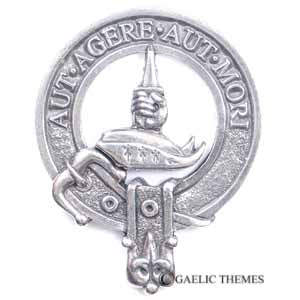Barclay
Select
- Design: Standard
- Clan Motto: Aut agere aut mori (Either action or death)
- Notes:
Crest: (on a chapeau azure doubled Ermine) a hand holding a dagger Proper
The Barclays have always lived up to their “do or die” motto, having a long history as courageous war leaders.
The first spelling of Barclay is “de Berchelai”. Thought to be derived form Anglo_Saxon for “beau” (beautiful) and “lee” (meadow), the name dates to the time of the Norman conquest when the family arrived with William the Conqueror.
The earls of Berkeley built Berkeley castle in 1153. It was so well-built, it was never taken until the British Civil War of the 17th century. In Scotland, the family settled in Towie, Mathers, Gartley and Pierston in Aberdeen. They also settled in Collairnie in Fife.
Walter de Berkeley served as chamberlain to King William the Lion during the War of Independance in 1165. Sir David Barclay served Robert the Bruce in several battles until taken prisoner at Methven.
In the 17th century, Colonel David Barclay, first Laird of Urie, fought both abroad (for the King of Sweden) and later at home in the British Civil War during which he commanded a regiment of horse on the Royalist side. Ironically, after the Restoration he was imprisoned in Edinburgh castle as “hostile to the government” but was later released. While in prison, he converted to the Society of Friends (the Quakers) and became a devout and respected leader and scholar defending the sect from persecution. In 1679, Charles II granted him a charter and the family lands in Urie became a free barony. David’s son, David Barclay of Cheapside, founded Barclay’s Bank.
The Barclay’s coastal trading business and ties to Scandinavia later led some of the family to settle in the Baltic. And in time one descendant, Michael Andreas Barclay de Tolly, became a Field Marshal and then Minister of War in Russia. He was responsible for the scorched earth campaign which decimated the armies of Napoleon in 1812. Despite being Scottish, he was even made a prince by the Tsar.
